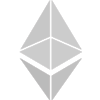Ethereum - A Short Article
Ethereum is a blockchain platform that was created in 2015 by a group of developers led by Vitalik Buterin. Ethereum is a decentralized platform that enables developers to build decentralized applications (dApps) on top of its blockchain network. Unlike Bitcoin, which was designed primarily as a digital currency, Ethereum was created to be a platform for building decentralized applications. These applications can range from decentralized finance (DeFi) platforms to games and social networks. Ethereum's smart contract technology allows developers to create complex, automated contracts that can be executed without the need for intermediaries.
One of the key features of Ethereum is its ability to support the development of dApps. Ethereum provides developers with a platform that enables them to build and deploy smart contracts. Smart contracts are self-executing programs that run on the Ethereum blockchain. They are used to automate the execution of contracts, which can range from simple agreements between two parties to complex financial instruments.
Read Also:
- ETHEREUM VS ETHEREUM CLASSIC - The Ultimate Discussion
- ALTCOIN ARTICLE
- What is Ethereum 2.0? - The Complete Explanation
- What is Ethereum? - The Complete Explanation
- A Complete Explanation About Altcoin
Ethereum's smart contract technology has enabled the creation of decentralized finance (DeFi) platforms. DeFi platforms enable users to lend and borrow cryptocurrencies, trade derivatives, and participate in liquidity pools, among other things. These platforms are decentralized, meaning that they are not controlled by any central authority. This gives users greater control over their finances and reduces the risk of centralized control.
Another key feature of Ethereum is its ability to support the creation of new cryptocurrencies. Ethereum provides developers with a platform for creating new tokens that can be used to represent assets, currencies, or other forms of value. These tokens are created using smart contracts and are compatible with the Ethereum network.
Ethereum is also designed to be scalable. The platform is capable of processing up to 15 transactions per second, which is significantly higher than Bitcoin's seven transactions per second. Ethereum's scalability is due to its use of sharding, which enables the platform to process transactions in parallel.
Ethereum's native cryptocurrency is called Ether (ETH). Ether is used to pay for transactions on the Ethereum network and is also used as a store of value. Ether has a market capitalization of over $300 billion, making it the second-largest cryptocurrency by market capitalization, behind Bitcoin.
In conclusion, Ethereum is a blockchain platform that enables developers to build decentralized applications on top of its blockchain network. Its smart contract technology has enabled the creation of DeFi platforms, and its scalability and ability to create new cryptocurrencies make it an attractive platform for developers. Ethereum's Ether cryptocurrency is one of the largest cryptocurrencies by market capitalization and is used to pay for transactions on the Ethereum network.

